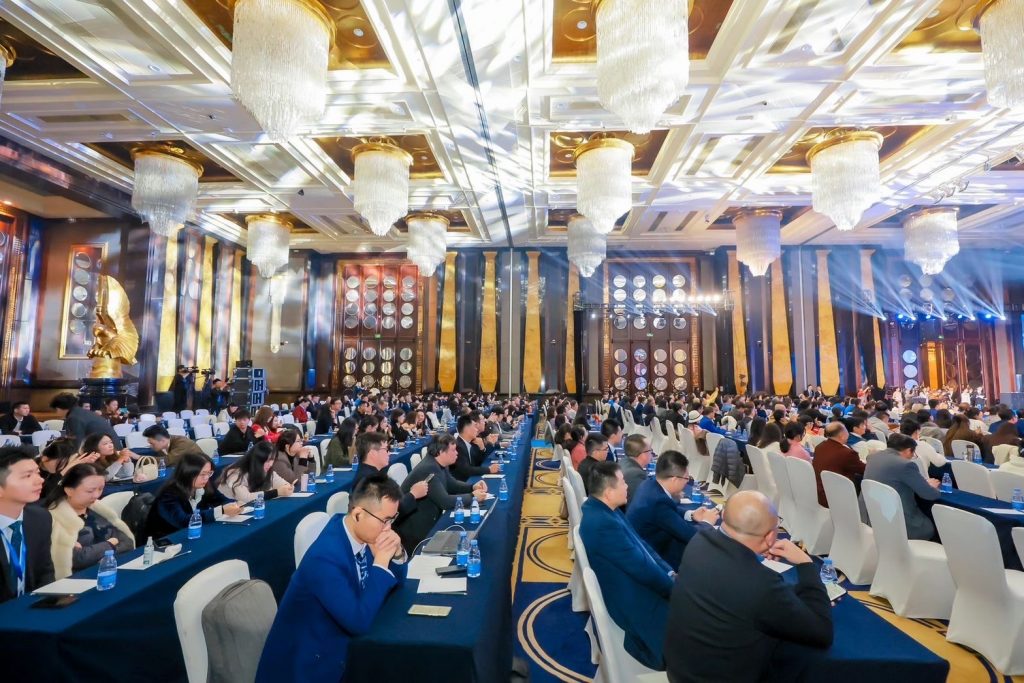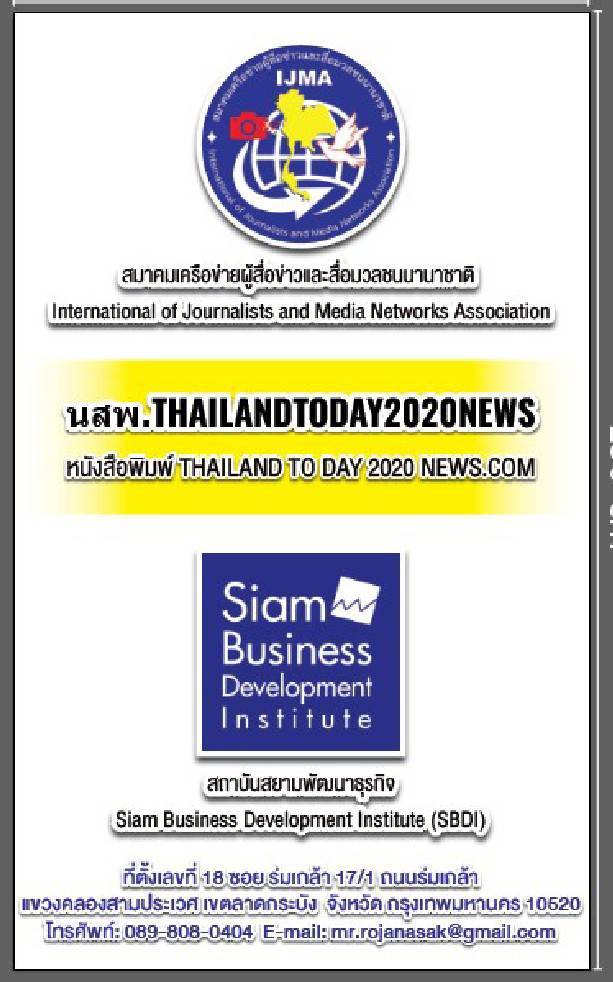
“อลงกรณ์” ลุยแดนมังกรดึงจีนลงทุน 10 อุตสาหกรรมใหม่แห่งอนาคตหวังเป็นเครื่องยนต์ (new growth engine) ขับเคลื่อนเศรษฐกิจไทย
นายอลงกรณ์ พลบุตร อดีตรัฐมนตรีเศรษฐกิจอาเซียน อดีตรองประธานสภาขับเคลื่อนการปฏิรูปประเทศคนที่1และอดีตรัฐมนตรีช่วยว่าการกระทรวงพาณิชย์ได้รับเชิญให้กล่าวปาฐกถาพิเศษในการประชุม BRI (Belt and Road Innitiative) industrial investment International summit forum 2024 ที่เซินเจิ้นโดยกล่าวว่า โลกผันผวนและเปลี่ยนแปลงทุกมิติอย่างรวดเร็วมีทั้งโอกาสและภัยคุกคาม เราต้องออกแบบอนาคตและนวัตกรรม (Innovating the Future)การลงทุนใหม่ๆ ประการสำคัญคือการมีหุ้นส่วน(partnership)ที่ดีเป็นหัวใจสำคัญที่สุด ขอให้เชื่อมั่นว่าโอกาสมีอยู่ทุกหนแห่ง(Possibility is everywhere)
นายอลงกรณ์ได้ยกตัวอย่างความร่วมมือระหว่างประเทศไทยกับประเทศจีนทางด้านการค้า การลงทุนและการท่องเที่ยวตลอด49ปีของความสัมพันธ์ทางการฑูตทำให้เกิดโอกาสทางธุรกิจและเศรษฐกิจเปิดกว้างและเติบโตต่อเนื่องแม้จะเผชิญกับปัญหาอุปสรรคต่างๆแต่ก็สามารถฝ่าฟันผ่านพ้นมาได้จนประเทศจีนเป็นประเทศคู่ค้าและผู้ลงทุนอันดับ1ของประเทศไทยรวมทั้งนักท่องเที่ยวชาวจีนก็มาไทยมากที่สุดโดยเฉพาะ10ปีแห่งความร่วมมือในการขับเคลื่อนโครงการ“หนึ่งแถบหนึ่งเส้นทาง” กรอบความร่วมมือทางเศรษฐกิจอาเซียน-จีนและความตกลงว่าด้วยความร่วมมือทางเศรษฐกิจระดับภูมิภาค RCEP ล่าสุดซึ่งสะท้อนให้เห็นถึงความสำคัญของความเป็นหุ้นส่วน (partnership) บนผลประโยชน์และความสำเร็จร่วมกัน“อุตสาหกรรมใหม่คือโอกาสใหม่ๆของทุกประเทศของทุกบริษัทและนักลงทุนทุกคนจึงขอเชิญชวนมาลงทุนทั้งในตลาดทุน (Capital Investment)และตลาด FDI (Foreign Direct Investment)ในประเทศไทยโดยเฉพาะระเบียงเศรษฐกิจตะวันออก (EEC) และเขตเศรษฐกิจพิเศษในภูมิภาครวมทั้งอุตสาหกรรมใหม่ (first S-Curveและ New S-Curve) 10 สาขาซึ่งมีมาตรการส่งเสริมการลงทุนเป็นพิเศษของรัฐบาลไทยภายใต้BCGโมเดลและเป้าหมายลดโลกร้อนของการประชุม COP28ได้แก่
1) อุตสาหกรรมยานยนต์สมัยใหม่ (Next – Generation Automotive) เช่นยานยนต์ไฟฟ้า
2) อุตสาหกรรมอิเล็กทรอนิกส์อัจฉริยะ (Smart Electronics)
3) อุตสาหกรรมการท่องเที่ยวกลุ่มรายได้ดีและการท่องเที่ยวเชิงสุขภาพ (Affluent, Medical and Wellness Tourism)
4) การเกษตรและเทคโนโลยีชีวภาพ (Agriculture and Biotechnology)
5) อุตสาหกรรมอาหารแห่งอนาคต (Food for the Future) และอุตสาหกรรมอนาคตใหม่(New S-curve) อีก 5 สาขา
1) อุตสาหกรรมหุ่นยนต์ (Robotics)และAI
2) อุตสาหกรรมการบินและโลจิสติกส์ (Aviation and Logistics)
3) อุตสาหกรรมเชื้อเพลิงชีวภาพและเคมีชีวภาพ (Biofuels and Biochemicals)
4) อุตสาหกรรมดิจิตอล (Digital)
5) อุตสาหกรรมการแพทย์ครบวงจร (Medical Hub)
ซึ่งเป็นรูปแบบการลงทุนในอุตสาหกรรมใหม่ เพื่อพัฒนาหรือเปลี่ยนแปลงรูปแบบสินค้าและเทคโนโลยี โดยจะเป็นหัวใจหลักของกลไกใหม่การขับเคลื่อนเศรษฐกิจของประเทศ (New Growth Engines)
นายอลงกรณ์ยังได้หารือระหว่าง Lunch meeting กับผู้บริหารบริษัทลงทุนยักษ์ใหญ่หลายแห่งซึ่งทุกบริษัทตอบรับอย่างกระตือรือร้นที่จะมาลงทุนในประเทศไทยทั้งอุตสาหกรรมใหม่และตลาดทุนของไทย
สำหรับการสัมมนาครั้งนี้มีผู้เข้าร่วมกว่า 500คนและมีสมาคมการค้าไทย-จีนและเศรษฐกิจเอเชีย โดยนางสาวอภิญญา ปราโมช นายกสมาคมฯ นางสาวประจงจิต พลายเวช รองประธานที่ปรึกษากิตติมศักดิ์สมาคมฯและนายเมฆินทร์ เอี่ยมสะอาด จากมูลนิธิสถาบันพลังงานทางเลือกแห่งประเทศไทยเข้าร่วมการประชุมด้วยโดยจัดที่โรงแรมเชอราตัน-เซิ่นเจิ้น เมื่อ 26 มกราคมที่ผ่านมา

Along with “Alongkorn,” China is attracting China to invest in 10 new industries of the future, hoping to be a new growth engine that drives the Thai economy.
Former ASEAN Economic Minister Alongkorn Ponlaboot, former Vice President of the First National Reform Steering Council and former Deputy Commerce Minister, was invited to give a special speech at the BRI (Belt and Road Initiative) Industrial Investment Conference. The International Summit forum 2024 in Shenzhen said: The world is changing rapidly with opportunities and threats. We must design the future and innovation. A key new investment is a good partnership at the heart of our business. Trust that opportunity is everywhere.
Mr. Alongkorn gave an example of cooperation between Thailand and China in trade. Investment and tourism throughout the 49 years of diplomatic relations has provided opportunities for business and economic growth. Despite challenges, China is Thailand’s number one trading partner and investor, as well as Chinese tourists, especially 10 years of cooperation in driving the “One-Band-Road” project. The ASEAN-China Economic Cooperation Framework and the latest RCEP regional economic cooperation agreements reflect the importance of partnership on mutual benefit and success.” New industries are new opportunities for all countries, and investors are encouraged to invest in both Capital Investment and Foreign Direct. Investment in Thailand, particularly the Eastern Economic Corridor (EEC) and 10 regional special economic zones, including the first S-Curve and New S-Curve, which are specific investment promotions by the Thai government under the BCG. The COP 28 model and targets are as follows:
1) The next-generation automotive industry, such as electric vehicles.
2) Smart Electronics (Smart Electronics)
3) The tourism industry, the income group and health tourism (Affluent, Medical and Wellness Tourism)
4) Agriculture and Biotechnology
5) Food for the Future (Food for the Future) And five new S-curve industries.
1) Robotics and AI industries
2) Aviation and Logistics industries
3) Biofuels and Biochemicals Industry
4) Digital industry (Digital)
5) Medical Hub (Medical Hub)
Which is an investment model for new industries to develop or change product and technology. It will be the core of the New Growth Engines.
Mr. Alongkorn also held a meeting with executives of several major investment firms, all of whom responded enthusiastically to Thailand’s new industry and capital markets.
The seminar was attended by more than 500 participants and the Thai-China Trade and Economic Association of Asia.The event was attended by Miss Apinya Pramoj, President of the Association, Miss Prachongjit Phlyvech. The Association’s Honorary Vice President and Mr. Makin Iamsad of the Thailand Alternative Energy Institute Foundation also attended the meeting held at Sheraton-Shenzen Hotel on January 26.








